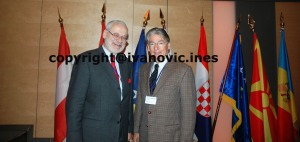
Dr. Erhard Busek President of Vienna Economic Forum – Hon. Cons. Pablo Zoltan
PABLO ZOLTAN ATTENDS VIENNA ECONOMIC FORUM BY INVITATION OF RAIFFEISEN BANK
Regional Cooperation – Challenges and Chances – 20 Years after the fall of the Iron Curtain
9 – 10 November 2009 in Raiffeisen Zentral Bank in Vienna
Topics:
- Bank and Insurance Sector: Crisis management: What is the correct policy response and is the IMF providing enough support?
- Crisis Time in CEE? Concrete Projects and Success Stories in the Vienna Economic Forum Member Countries. The Danube Cooperation.
- CEO and Ministers Session: Visions are required! How to attract FDIs in crisis times? Public Private Partnership (PPP) Projects
- Challenges and Chances for the Regional Cooperation in the Energy Sector. Regional Energy Prospects in 2010 and Beyond
- Regional Energy Prospects in 2010 and beyond. Concrete Projects. Energy Saving.
- Regional Energy Prospects in 2010 and beyond. Pipeline Projects – Diversification as an Impulse for the Economy
- Governors and Bankers Session: How to attract liquidity and safeguard lending? Tools and measures to steer economic imbalances: Ask the Governors
By special invitation of Reiffeisen Bank Vienna, Pablo Zoltan Frank , Hon. Consul of Hungary in Andalucía, Spain and Co-Chairmen of communications group G24W, attended the several meetings of the 6th Vienna Economic Forum. At this year’s 6th Vienna Economic Forum on November 9 and 10, 2009 President Dr. Erhard Busek and Secretary General Ambassador Dr. Elena Kirtcheva had the great pleasure to welcome around 400 participants from 30 countries throughout the world. Beside our honourable VIP-Guests, Deputy Prime Ministers, Ministers from our Member countries, high ranking representatives from Energy Community Secretariat, International Monetary Fund (IMF), Regional Cooperation Council located in Sarajevo, Southeast European Cooperative Initiative (SECI), South-East European Cooperation Process (SEECP), United Nations Industrial Development Organization (UNIDO) and United Nations Industrial Development Organization) took part in the meeting.
An Opening Message was given by H.E. the Austrian Federal Chancellor Werner Faymann, who pointed out the importance of the South-East European region in the last 20 years after the fall of the Iron Curtain and the close cooperation with the Austrian economy.
Dr. Erhard Busek, Former Vice Chancellor of Austria and President of Vienna Economic Forum underlined the necessity of regional cooperation for the countries of South-Eastern Europe.
A welcome Address was given by Dr. Herbert Stepic, Chairman of Raiffeisen International Bank-Holding AG, Vice Chairman of RZB AG and Member of the Board of Vienna Economic Forum, who hosted the Forum again this year. Dr. Stepic mentioned that the countries from the region have successfully changed in the last 20 years, and that they can trust in their partners.Congratulations came from Dr. Veit Sorger, President of the Federation of Austrian Industry and Founding Member of Vienna Economic Forum. European perspective and a future EU membership as the driving force for the political and economic development of South-East Europe.
Further speaking during the first Plenary Session were Mr. Hidajet Biscevic, Secretary General of the South East European Cooperation Process (SEECP) and Regional Cooperation Council.
It was a pleasure for Vienna Economic Forum to welcome so many important Ministers, Deputy Ministers and high-ranking representatives from companies in Austria and in the region.
Ministers from the Region participating in the 6th Vienna Economic Forum were:
H.E. Mr. Valeriu Lazar, Vice Prime Minister and Minister of Economy of the Republic of Moldova
H.E. Dr. Fatmir Besimi, Minister of Economy of the Republic of Macedonia
H.E. Ms. Justina Shiroka-Pulla, Minister for of Energy and Mining of the Republic of Kosovo
H.E. Mr. Musa Xhaferri, Minister of Local–Self Government of Macedonia
The Governors, Members of the Governors Committee of Vienna Economic Forum who took part in the special Governors Session were:
Dr. Wolfgang Duchatczek, Vice Governor of the Oesterreichische Nationalbank
Mr. Ardian Fullani, Governor of the National Bank of Albania
Mr. Kemal Kozaric, Governor of the National Bank of Bosnia and Herzegovina
Mr. Dimitar Kostov, Deputy Governor – Banking Department, the National Bank of the Republic of Bulgaria
Mr. Hashim Rexhepi, Governor of the Central Bank of Kosovo
Partners with whom Vienna Economic Forum has a Memorandum of Understanding were represented in the 6th Vienna Economic Forum:
Furthermore, Ceremonies of Signing a Memorandum of Understanding with
Mr. F. Sadi Gücüm of
DEIK, Foreign Economic Relations Board of Turkey, and
Dr. Milan Parivodic, Chairman of Foreign Investors Services d.o.o., Serbia, were held.
Secretary General Ambassador Dr. Elena Kirtcheva stated she is glad to see Vienna Economic Forum grow to be a useful platform and pointed out that 20 years ago this Forum would not have been possible to organize. Ambassador Dr. Kirtcheva pointed out the big role of the pioneers in this region, who helped introduce investment in the region. Speaking about the pioneer activities, she this year presented for the first time the Vienna Economic Forum – South East Europe Award. The highly esteemed award winners were
Dr. Erhard Busek, Former Vice Chancellor of Austria, Co-founder and President of Vienna Economic Forum – for his years of contribution to the political and democratic reforms in the countries of the region,
Dr. Herbert Stepic, Co-founder and Member of the Board of Vienna Economic Forum (and from the beginning host in the Raiffeisen Hall in Raiffeisen Zentral Bank) for his steady pioneer activities in the countries of Vienna Economic Forum, for the development of the banking sector in the region, always risk-willing and successful,
Dr. Wolfgang Schüssel, Former Federal Chancellor of Austria, for his steady and active support of the countries of Vienna Economic Forum on their way to a democratic and market economiy reform,
Dr. Veit Sorger, President of the Federation of Austrian Industries and Founding Member of Vienna Economic Forum, for his years of consequent and active participation in the investment processes in the countries of Vienna Economic Forum.


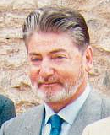
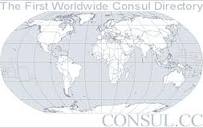
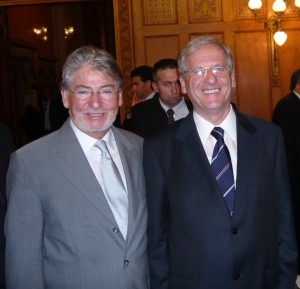
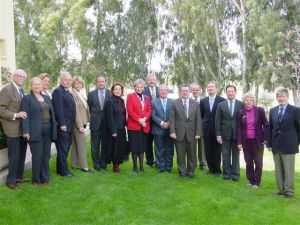


Escrito
en 25/01/2009